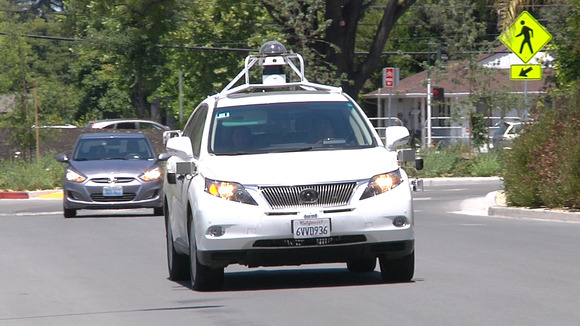-
Tips for becoming a good boxer - November 6, 2020
-
7 expert tips for making your hens night a memorable one - November 6, 2020
-
5 reasons to host your Christmas party on a cruise boat - November 6, 2020
-
What to do when you’re charged with a crime - November 6, 2020
-
Should you get one or multiple dogs? Here’s all you need to know - November 3, 2020
-
A Guide: How to Build Your Very Own Magic Mirror - February 14, 2019
-
Our Top Inspirational Baseball Stars - November 24, 2018
-
Five Tech Tools That Will Help You Turn Your Blog into a Business - November 24, 2018
-
How to Indulge on Vacation without Expanding Your Waist - November 9, 2018
-
5 Strategies for Businesses to Appeal to Today’s Increasingly Mobile-Crazed Customers - November 9, 2018
California cautiously legislating for driverless cars
California has released its first ever regulatory proposal for self-driving cars, which requires a licensed driver to be present in the vehicle to take control of it in case of technical failure or emergency.
Advertisement
Self-driving cars will also be required to detect, self-diagnose and respond to cyber attacks and other unauthorised intrusions, allowing the human driver to take control, the ruling stated. California also banned the sale of self-driving cars, limiting manufacturers to leasing the vehicles.
The proposed regulations require certification and third-party testing for carmakers, as well as regular reports back to the DMV for a period of three years.
Brian Soublet, the DMV attorney who helped draft the rules, said the agency would tackle regulations for cars with no driver inside in the future.
According to Google, their self-driving cars have proven to be safe.
Google plans to make its self-driving cars unit, which will offer rides for hire, a stand-alone business under its parent company Alphabet Inc next year, Bloomberg reported.
The development of self-driving auto technology may have received a major blow after California outlined proposals for tough new legislation.
Fully autonomous vehicles aren’t ready for prime time, as far as California’s Department of Motor Vehicles is concerned.
While the new regulations pave the way to wider use of the cars, current technology will still limit the geographic area in which they can travel. Even then, of course, there may be opportunities for the regulations to be revised to allow for the roll-out of fully driverless autonomous cars on California’s roads.
Steven Shladover, a research engineer with a UC Berkeley advanced transportation program, said the DMV faces a hard challenge in establishing the nation’s first real regulations for self-driving cars – something it was required to do by legislation in 2012.
The DMV will hold hearings on the proposed rules in January and February, and will consider making changes before they’re made final, Gonzalez said.
The company said in July it was testing a fleet of 23 specially equipped Lexus prototypes, which had logged more than 1 million test miles.
Advertisement
“Safety is our highest priority and primary motivator as we do this”, Johnny Luu, a spokesman for Google, said in a statement. This will be a great initiative if it goes through and will hopefully do a lot good for the autonomous vehicle industry as a whole. Company officials in the past have also argued over the concept of “human-presence”, and believe extra regulations become redundant if computer programmed cars can follow existing traffic rules better than human drivers.





























